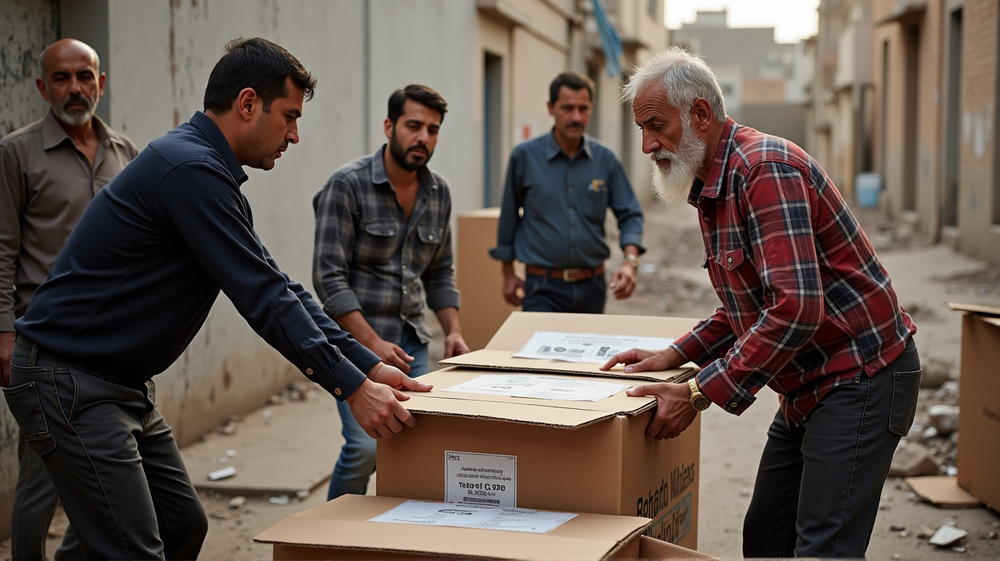Aid Amidst Chaos
The Gaza Humanitarian Foundation (GHF), a US and Israel-backed initiative, has faced significant criticism as it attempts to address the humanitarian needs of Gaza’s citizens. According to Middle East Eye, the organization has distributed only 14,000 food boxes, which fail to meet the overwhelming demand amidst Gaza’s dire circumstances.
Contents of Despair
Each aid box, designed to feed a family of 5.5 for 3.5 days, contains sparse supplies including four cans of tuna, packets of spaghetti, and a liter of oil. Critics have lambasted these rations, pointing out the absence of essential items such as baby formula and medical supplies. Palestinians, desperate for survival, lament the inadequacy and inaccessibility of these provisions.
The Struggles of Distribution
Distribution has only taken place at two hubs in Rafah, guarded by American security contractors. As families walk miles through devastated areas, including crossing military lines, chaos and confrontation emerge. The human rights implications are profound: scenes of chaos reveal the desperation as thousands seek sustenance amidst allegations of the misuse of aid for controlling the population.
Leadership in Crisis
Compounding the situation, the GHF was thrown into disarray when its chief executive resigned, citing concerns over humanitarian ethics. Transparent funding remains a mystery, as questions about its benefactors linger.
International Attention and Criticism
International bodies, including the United Nations, have condemned the GHF’s model of distribution. They argue that it deviates from humanitarian principles, emphasizing the need for respect, dignity, and safety in the aid process. Yet, as the world watches with growing concern, the challenges in Gaza highlight the complexities and urgency of humanitarian aid in the region.
GHF’s narrative unfolds against a backdrop of conflict and desperation, stirring both empathy and anger in a world striving to understand and assist Gaza’s people.












